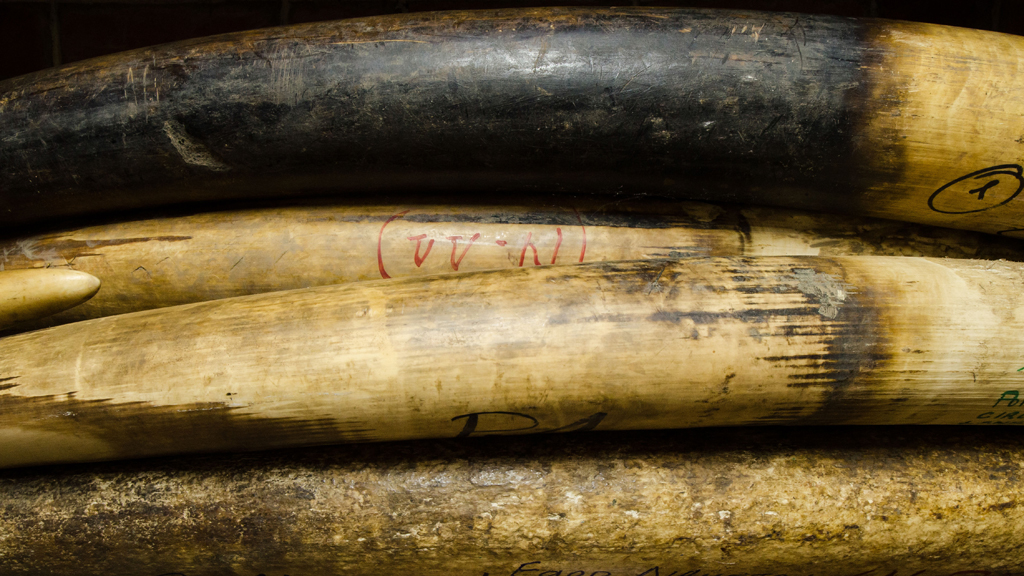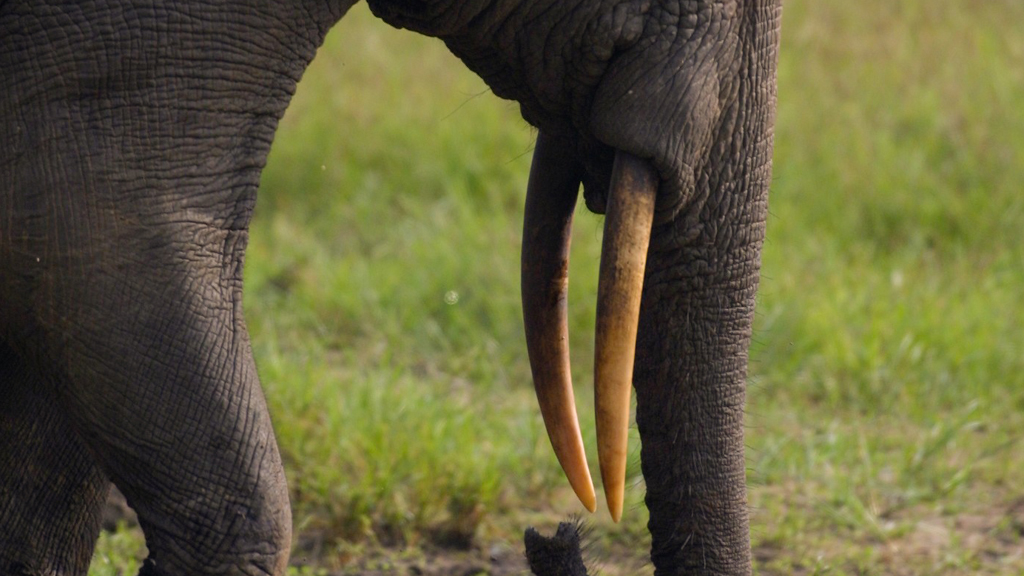Bloody battle to save Congo elephants from ivory poachers
As a conference on wildlife trafficking opens in London, Congo conservationists claim Chinese in the country are boosting the supply of AK47 bullets to poor communities to encourage elephant poaching.

Credit: African Parks/Pete Oxford
Odzala-Kokoua National Park is Congo’s biggest national park and contains one of the country’s most intact savannahs, as well as a vast expanse of equatorial forest filled with much of central Africa’s rich biodiversity, writes Asha Tanna.
Park manager David Zeller met with me in the capital, Brazzaville, and told me: “In the past ammunition, i.e. bullets, were supplied by corrupt local police, the gendarmerie [national police] and the military. But even then they had to be careful because they had to account for how much was being handed out. You needed a strong connection with a corrupt official.
By supplying more bullets to locals, it’s led to an increase in in poachers. David Zeller, Odzala-Kokoua National Park manager
“There are very strict regulations on the firearms trade in and out of China, which begs the question: ‘Where are the guns and ammunition coming from?’
“We believe it is very possible that Chinese workers here are obtaining it in small doses from dealers across Africa with lax border controls. By supplying more bullets to local people, it’s led to an increase in poachers and has made it easier to get access to ammunition.”
Elephant refuge
Although the elephant population within Odzala is stable, the hunting pressure is now reaching “a worrying level”, says Mr Zeller, and if the current situation continues unchanged, elephant populations will decline drastically, if not crash.
Naftali Honig, co-ordination of the non-governmental wildlife enforcement organisation PALF, told me: “Odzala is likely to be a refuge for elephants fleeing less protected areas outside the park’s boundaries.
We’ve known for a while Chinese workers on the NR2 highway have been involved in elephant poaching. Naftali Honig, coordinator, PALF
“Poaching is rife in that area. The area around Odzala, as well as other parks in north Congo that are beyond protection, is a source for the high-volume illegal raw-tusk trade exported out of Congo, where it transits en route to Asia.
“We’ve known for a while Chinese workers on the NR2 highway have been involved in the poaching of elephants. Even when we have these people caught red-handed with ivory, they have managed to achieve impunity due to corruption here in Congo.
“Corrupt officials make it next to impossible to plunge deep into the complicated networks to secure convictions for those at the top running these Mafia-style operations.”

Credit: African Parks/Pete Oxford
Easier to smuggle
The non-profit organisation African Parks, which manages Odzala-Kokoua, says during 2012-13, 33 poachers were arrested but only seven were jailed. The law in Congo stipulates that there is a mandatory five-year sentence for anyone working in law enforcement involved in elephant poaching.
But a case last year saw one police officer who was found guilty serve just two months. The other 26 people arrested walked free without a trial, or a hearing or due process.
In 2011, estimates by conservationists put the number of elephants slaughtered across Africa at 50,000. It was considered to be the highest figure in history. They say 70 per cent of the illegal ivory trade is flowing into China, where the economic boom has helped to fuel a burgeoning middle class.
Carving ivory before it leaves makes it easier to smuggle out through customs. David Zeller
Mr Zeller told me tonnes of ivory leaves Congo every year, most of it whole, but they are now also finding carved ivory being smuggled out, which means processing is happening in-country.
He added, “Carving ivory before it leaves makes it easier to smuggle out through customs. Last year PALF stopped a plane from leaving the airport and searched the luggage of a Chinese worker and confiscated ivory pieces from that individual. We have also found ivory shavings outside the camps of Chinese workers.”
Chinese bullets
More than half the population in the Republic of Congo is unemployed, with rural communities being the worst off. Poverty in the areas surrounding Odzala is widespread and villagers often turn to natural resources on their doorstep to survive.
Mathieu Eckel, head of the anti-poaching unit in Odzala, says Chinese workers approach local communities desperate for cash, and although they are not paid vast sums of money, the drip-drip effect of some income has them hooked.
He showed me a video of a local man arrested on suspicion of poaching last spring making a statement. He claimed his bullets were supplied by a Chinese worker. A short while later the man is seen calling his Chinese dealer to ask for more AK47 bullets. The dealer’s response is clearly heard – yes, he can give him the same kind of bullets he supplied as before in order to collect ivory.
Pygmies are the best poachers because they use the forest every day and have been hunting elephants for years. Mathieu Eckel, Odzala anti-poaching unit
Mr Eckel said, “In this area Bantus [local people] as well as pygmies hunt, but pygmies are the best poachers because they use the forest every day and have been hunting elephants for years. In the past hunting was done for survival but now they see ivory as more valuable than the forests.
“Pygmies are also becoming more modernised and are affected by influences like cigarettes and alcohol. Sometimes they are paid in cash for ivory but they will also accept home-brewed alcohol [made from either maize or palm] as payment too.
“This community is lost, they have no education, few are employed, and they are viewed as slaves by the other communities who feel more superior to them, so they have no rights. Poaching is an escape.”
Mr Zeller says activists in Congo are in talks with the Chinese embassy and they have had positive feedback about a protocol for engagement. “They are keen that their nationals here in Congo are not involved in this illegal activity.” But he acknowledges this is the start of a long process.
He added: “If elephant populations in Congo are to survive, we need high levels of government interest at low levels. Brazzaville needs to put out a strong message, even if it’s just for show.”
Asha Tanna is a freelance journalist with a masters in primatology and conservation
-
Latest news
-
As India goes to the polls in the world’s largest election – what do British-Indians think?6m

-
Tees Valley: Meet the candidates in one of the biggest contests coming up in May’s local elections4m

-
Keir Starmer says public sector reform will be a struggle7m

-
Nicola Sturgeon’s husband Peter Murrell charged with embezzlement of funds from SNP1m

-
Ukraine might finally get $60billion in American weapons and assistance to defend against Russia3m

-




